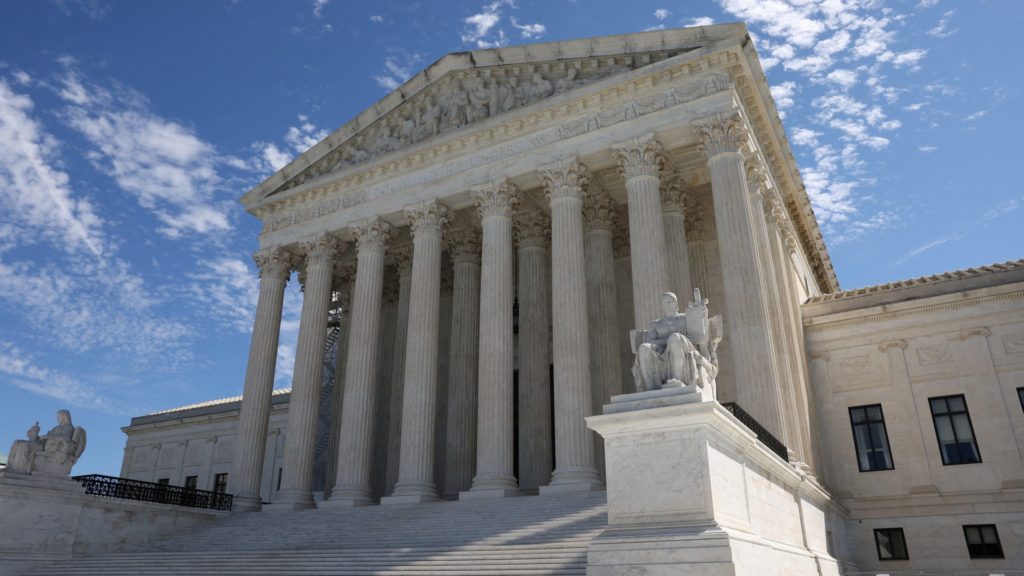The U.S. Supreme Court will hear arguments on Idaho's near-total abortion ban, which the court temporarily reinstated after the Justice Department asserted the law conflicted with a federal statute on emergency medical care.
In a Jan. 5 order, the Supreme Court scheduled oral arguments regarding the ban for April 2024, while granting a stay on a preliminary injunction against the ban issued in August 2022.
Two emergency applications for a stay on the injunction -- one filed by Idaho Speaker of the House Mike Moyle, the other by the State of Idaho -- were consolidated by the Supreme Court in the Jan. 5 order.
Several Catholic organizations filed amicus briefs in support of Idaho's case against the federal government, including the Catholic Health Care Leadership Alliance, the Catholic Bar Association and the Catholic Benefits Association.
At issue is Idaho's "Defense of Life Act," which bans abortion except in cases of rape, incest or where a physician deems the procedure medically necessary to save a pregnant woman's life.
The law -- which Moyle noted in his supplemental brief had "passed by a super-majority of the Idaho Legislature" -- was enacted in 2020, and contained a "trigger" provision that activated it upon any Supreme Court ruling returning abortion law to state authority. Following the Supreme Court ruling in the Dobbs v. Jackson Women's Health Organization case -- which overturned the court's 1973 Roe v. Wade and Doe v. Bolton abortion precedents -- Idaho's law was set to take effect in August 2022.
The Justice Department argued Idaho's law conflicted with the Emergency Medical Treatment and Labor Act, or EMTALA, under which hospitals that receive Medicare funding and have emergency rooms must provide "necessary stabilizing treatment for emergency medical conditions and labor."
Among the conditions cited by the Justice Department as possibly necessitating abortion were "ectopic pregnancy, severe preeclampsia, or a pregnancy complication threatening septic infection or hemorrhage."
In his supplemental brief, however, Moyle called the department's argument against Idaho's law "extraordinary" and "novel."
"EMTALA is not a nationwide abortion mandate. It does not purport to impose nationwide standards of care," he wrote, citing the federal law and case precedents. "Indeed, the only treatment specified in EMTALA is the delivery of an 'unborn child,' a life EMTALA also protects, for women in labor."
Moyle also cited a previous federal court ruling determining "neither EMTALA's text nor the Medicare Act as a whole prescribed abortions," and that "the purpose of EMTALA is to provide emergency care to the uninsured."
In a statement, President Joe Biden said that the court's action "allows Idaho's extreme abortion ban to go back into effect and denies women critical emergency abortion care required by federal law."
Biden claimed the Dobbs decision has led to "dangerous abortion bans like this one that continue to jeopardize women's health, force them to travel out of state for care, and make it harder for doctors to provide care, including in an emergency."
However, Idaho Attorney General Raúl Labrador, a Republican, said in a statement he is very pleased and encouraged" by the Supreme Court's decision tto take up the case.
"The federal government has been wrong from day one," Labrador said. "Federal law does not preempt Idaho's Defense of Life Act. In fact, EMTALA and Idaho's law share the same goal: to save the lives of all women and their unborn children."
Idaho Chooses Life, a pro-life political advocacy group, hailed the Supreme Court's Jan. 5 order as a "historic win" and a "preliminary victory."

